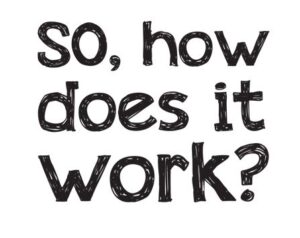For a managed service provider (MSP), providing the most exceptional IT services to clients takes the first priority. However, sales are just as important as your services, and should not slip to the bottom of your priority list.
There’s a common formula that many organizations use when forecasting the number and dollar amounts of deals closing in a given period of time, “Whatever the forecast, cut that by 50% then subtract 20%”. However, we very often pay attention to how good or bad the numbers are but barely ask if they are accurate. It seems that this is the quandary that every sale and service organizations is suffering from, regardless of the industry they are in. From my experience, an MSP company is not an exception to this point.
Now that we have isolated the problem, let’s look for a sound resolution. To help an MSP’s monthly sales forecast, one thing we can do is to recognize the proactive and reactive salespeople in our team.
The reactive ones are those who are less likely to take the initiative. Instead of keeping an eye out for an opportunity or a hidden issue throughout the sales cycle, they wait for the customer to reach out and respond once the customer has initiated contact. This reactive mindset has the biggest negative impact during the early stages, specifically dealing with the account management. Sadly, I find that this type of salesperson is very common in most companies. Even though this does not necessarily do any harm to your organization, chances are it will eventually slow the organic growth of your existing base.
The proactive ones, on the other hand, are people whose working style is completely opposite to the reactive ones’. If you spend time observing your sales team, you will soon find that in most cases, those with the most accurate forecast are very proactive. These people will show you that they have their finger on the pulse of all opportunities and are aware of any possible issues. When selling products, they are not waiting until they receive a call from a prospect but are proactively reaching out to all potential customers. It’s not unusual to see them in constant contact, even multiple times per week, throughout the sales cycle. Above all, people who are proactive feel comfortable communicating their forecast, no matter how good or bad the numbers are. They just need to know if you would rather have the truth, a conservative forecast, or one that bloviates to look good in the weekly sales meetings.
It should not be hard to tell the proactive salespeople from the reactive ones, or to recognize who are performing proactively in the team. Over a period of time, usually within a quarter, you will know who a solid forecaster is and who is not. There are several things we can do every day to become a proactive forecaster. First of all, if you are an account manager or a sales representative, part of the forecasting evaluation you have to make is to ask what the last course of action and contact will be. Secondly, notice if there are any outstanding issues or questions that are left unanswered. If that is the case, take time to think about a resolution or what you can do to accelerate and complete the task. Then confirm the closing dates at least three times: voice, mail, voice. Last but not least, as most of us now have a CRM system, use it to track every interaction. I personally have my CRM open every day to track my calls and look back to see when was the last time I reached out to my prospects.
Sales forecast and sales as a whole are painful or not depending on what our performance looks like day to day. If we choose to be a reactive person, we are probably not damaging anything, yet little do we make any big contribution to the growth of our organization. Meanwhile, if being proactive can help to improve the future of sales as well as avoid our company’s growth from slowing down, why not dare to take the lead? As an MSP, it is important for you to keep this in mind because the more proactive your sales team is, the more time you save for your IT service improvement. Try to apply these simple ideas to your organization and make sure everyone is prepared to be challenged on their forecast. Sooner or later, you will find that your team produces more effective work and that the forecasts will become much tighter. Also, reward the person that comes close or exceeds his forecasts as this will motivate people to adjust their performance. In the end, you will realize that this is a win-win game for both your company and your customers.
LANtelligence, Inc., March 22 2019 - Joe Schiavone's idea, Uyen Vo's writing

